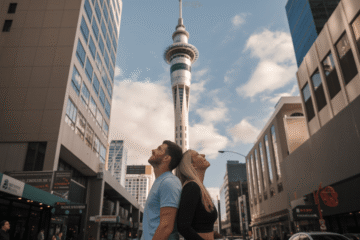How are influencers being stopped from promoting gambling

Last Updated on August 12, 2025
Australia is preparing for a significant shift in how online gambling is promoted, particularly across social media platforms. With a parliamentary inquiry recommending a phased ban on online gambling advertising by 2026, regulators are beginning to crack down on how betting companies use celebrities and influencers to promote their products. However, in a constantly evolving digital landscape where content is ubiquitous and brand associations are subtle, blocking these promotions isn’t as straightforward as it seems.
At the heart of the issue is how sports betting is marketed to young people, particularly young men, the demographic most engaged in sports betting and most vulnerable to gambling harm. Over the past decade and a half, this group has become a key target for marketing campaigns. From flashing odds during live matches to sponsorships with high-profile athletes, the tactics are as varied as they are persistent. Increasingly, though, companies are leaning on influencers, not just celebrities, to embed betting into everyday online experiences.
Unlike traditional celebrities, influencers maintain a more personal, often interactive relationship with their audiences. This gives their endorsements a more organic feel, which can be especially powerful when promoting gambling. These promotions might come in the form of paid collaborations, where influencers mention a betting brand in their posts, or in more covert sponsored content, a grey area that’s harder to regulate.
One option for online casino operators is to use content marketing strategies that appear unrelated to gambling altogether. They might create sports news websites under the same name as their betting platform, blurring the line between editorial content and brand promotion. This tactic, used in countries like Italy where direct gambling ads are banned, allows companies to maintain visibility without technically violating advertising rules.
Even with looming restrictions, the industry continues to innovate. Gambling companies have invested heavily in platforms where regulation is less stringent or slower to catch up, especially in influencer-driven spaces like TikTok, Instagram, and YouTube. These platforms offer fertile ground for promoting betting in subtle ways, a quick odds mention here, a casual reference to betting success there, making enforcement of a blanket ban extremely challenging.
Australian regulators are confronted with a formidable challenge. On one hand, there is a pressing need to shield young people from gambling-related harm. On the other, there’s the intricate task of monitoring content across multiple media formats, especially when that content doesn’t resemble traditional advertising.
The real challenge lies in defining what gambling advertising actually is in today’s world. As influencer and content marketing continue to shape the way people consume information, laws must evolve just as quickly. It’s crucial to seek input from marketers who understand these trends firsthand. Without their insights, any ban risks falling behind the very tactics it’s meant to prevent.
As Australia moves toward reform, the future of online gambling promotion hinges on how effectively authorities can anticipate and respond to new marketing methods, not just shut down the old ones. This underscores the urgent need for regulatory reform in the digital age.


